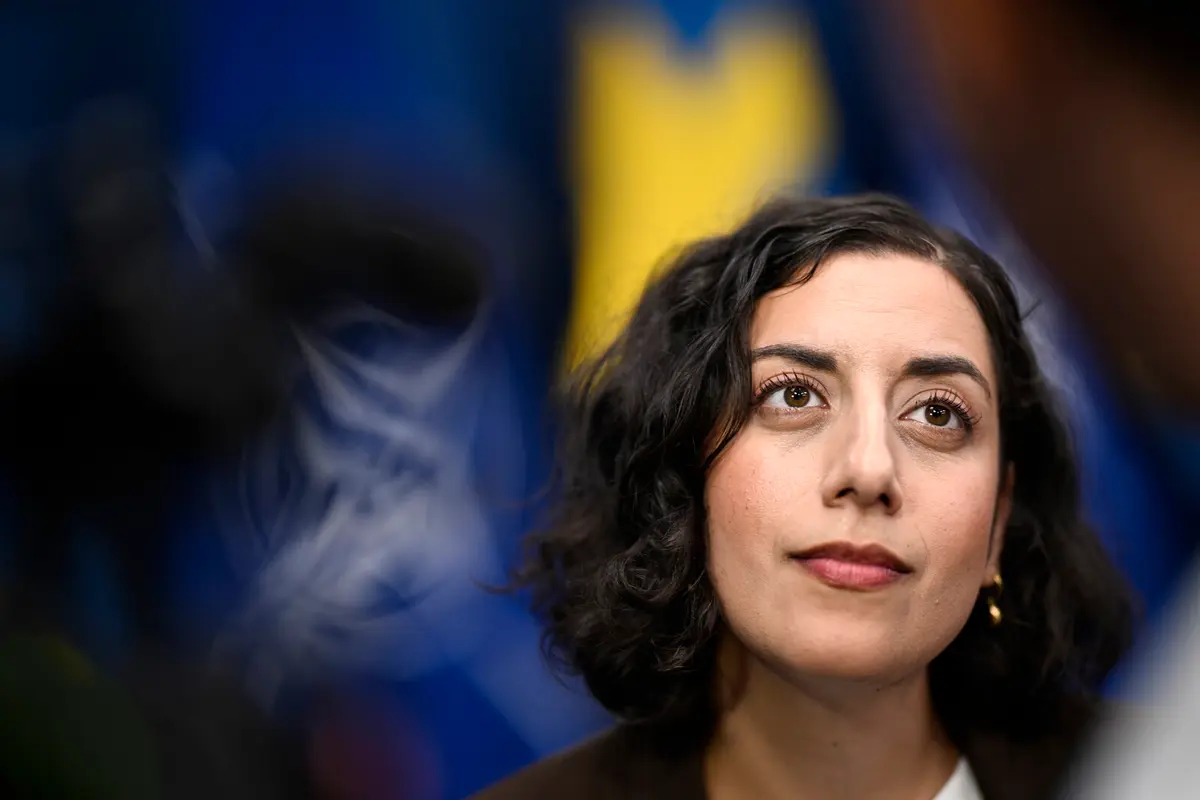In three hours on Tuesday, Minister of Education Simona Mohamsson (The Liberals) and Upper Secondary School Minister Lotta Edholm (The Liberals) met with representatives of all parliamentary parties.
According to the invitation, the purpose was "dialogue" and to create a "long-term perspective" in several of the changes announced by the government. They concern a new grading system, new curriculum, better working conditions for teachers and a reform of teacher education. These are changes that, if implemented, will affect teachers, students and students for many years to come.
When asked what the meeting gave, Simona Mohamsson replies:
I can state that we have parties in opposition that do not agree and lack the consensus we have in the government.
She mentions student influence, screens in the classroom and regulation of teachers' working hours as issues where opposition parties think differently and continues:
Whose school policy will govern the opposition? On our side, it is clear that it is The Liberals who decide the bourgeois school policy because we are the school party. And the other bourgeois parties have confidence in us on these issues.
Limit remaining?
When it comes to grades, there is an investigative proposal to introduce a new, ten-grade scale, without a hard pass limit where more students should be able to become eligible for upper secondary school. There is already support among opposition parties to abolish the grade F, i.e. failed. The government parties have swung and are also on that line, but in the Tidö agreement with SD, it is stated that the grading system "will also in the future have a limit between pass and fail result."
I think we agree that we should have a school that does not knock out students, says Mohamsson.
No profit
Åsa Westlund, the Social Democrats' school policy spokesperson, was one of those who participated in the meeting. She missed two things:
It was clear that the government did not want to discuss the profit hunt (in the independent school sector, ed. note). The government did not take the chance to tell if they want any cooperation, and create the long-term perspective that is needed for the Swedish school.
She also dismisses Mohamsson's picture of disagreement within the opposition:
There is a huge consensus on, for example, more state funding of schools and the profit hunt, says Åsa Westlund.
According to her, no new meeting is planned.
Anna Lena Wallström/TT
Facts: Some announced changes in the school area
TT
Grades: New ten-grade grading scale, without a sharp pass limit. New national final exams are weighed in the final grade, to prevent happy grades. Investigative proposal presented in February this year. Upper secondary education: In November 2024, a report was published on a new form of vocational programs in upper secondary school, with fewer theoretical subjects.
Curriculum: In February this year, a report was published on a new curriculum for primary school, with increased emphasis on factual knowledge and reading, writing and arithmetic.
Teacher education: In December 2024, an investigative proposal was presented on changes in teacher education: stricter admission requirements and a reform to more "school-based" education, with more time on subjects and subject didactics.
Teachers' working conditions: Reduced requirements for documentation and fewer development conversations to ease the teachers' workload. Proposal on this presented in March this year. The report also included proposals for regulation of teachers' teaching time.






